

| Title | Author | Call# | Book Cover |
|---|---|---|---|
| Cinema Studies: The Key Concepts | Hayward, Susan | PN 1993.45 .H36 2018 | 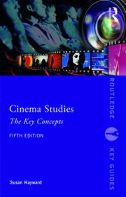 |
| French Cinema: From its Beginnings to the Present | Lanzoni, Remi Fournier | PN 1993.5 .F7L33 2011 | 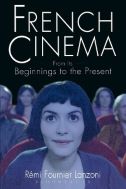 |
| Beyond the Boundaries of Bollywood: The Many forms of Hindi Cinema | Dwyer, Rachel | PN 1993.5 .I8B3865 2011 | 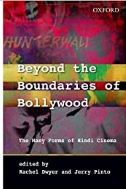 |
| Movies and Meaning: An Introduction to Film | Prince, Stephen | PN 1994 .P676 2007 | 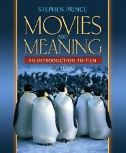 |
| Miyazakiworld: A Life in Art | Napier, Susan | PN 1998.3 M577N37 2018 | 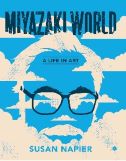 |
| Writing About Movies | Gocsik, Karen M. | PN 1995 .G547 2013 | 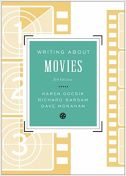 |
| Film theory and criticism introductory readings | Braudy, Leo | PN1994 .M364 2016 | 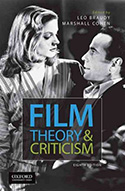 |
| Film art: an introduction | Bordwell, David | PN 1995 .B617 2024 |  |
* Want to reserve one of these titles? Email library@alexandercollege.ca with your student # and the book title.
These e-Books are available in the online library collection. Click the title to access the resource.
Telling and Re-telling Stories: Studies on Literary Adaptation to Film
Lind, Paula Baldwin 2016
Film Theory: Creating a Cinematic Grammar
Colman, Felicity 2014
Dixon, Wheeler W. 2018
These handbooks provide information resources about film theory, and guides for studying and writing about film.
Film: The Essential Study Guide (2009) by Deborah Shaw
Film: The Essential Study Guide is a resource for new students, covering topics such as: online research and resources, viewing skills, and essay writing and presentation skills. It can be found here.
Writing About Movies (2013) by Karen M. Gocsik
Writing About Movies is a guide to the process of academic writing and an introduction to film form, film theory, and film analysis. It can be found on campus, under the call number PN 1995 .G547 2013.
When looking for resources related to FILM, try some of these keywords in your searching :
e.g., cinema AND adaptation
* Interested in learning more about using keywords for research? Check out our videos on how to create and search using keywords on our Research Skills page.
Open access resources are resources that are available to everyone for free online. Links here will lead to sites where you can download textbooks or access journals related to film studies.
Media Studies 101 by Erika Pearson
Media Studies 101 is a text that covers the concept of media literacy and analysis. Chapters can be read in any order and link back to others.
Magazine published by the British Film Institute, covers international film releases. Carried at the library and online via Humanities Full Text database (2000-present).
Internet Movie Database (IMDB)
Online database of information related to films and television.
Online glossary of film industry terms, by the New York Film Academy.
Assignments written for Film Studies courses use the MLA (Modern Language Association) rules for formatting. MLA handbooks are available for your reference in the library or at the Writing and Learning Centre. Online WLC citation guides can be found here You can also book an appointment with the Writing and Learning Center for workshops and one-on-one learning help.
Need help? Connect with a Librarian through AskAway!
AskAway ChatAlexander College acknowledges that the land on which we usually gather is the traditional, ancestral and unceded territory of the Coast Salish peoples, including the territories of the xʷməθkwəy̓əm (Musqueam), Skwxwú7mesh (Squamish), and Səl̓ílwətaʔ/Selilwitulh (Tsleil-Waututh) Nations. We are grateful to have the opportunity to work in this territory.
Alexander College acknowledges that the land on which we usually gather is the traditional, ancestral and unceded territory of the Coast Salish peoples, including the territories of the xʷməθkwəy̓əm (Musqueam), Skwxwú7mesh (Squamish), and Səl̓ílwətaʔ/Selilwitulh (Tsleil-Waututh) Nations. We are grateful to have the opportunity to work in this territory.